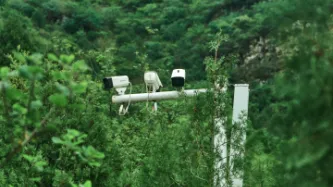Advanced Search
Content Type: Long Read
Go back to the full report pagePeriod Tracker by Simple Design is another popular period tracking app that has over 150 million users. To begin using this app the user answers a set of three onboarding questions for about their cycle pattern. The user has the option to answer 'I'm not sure' for each question. After answering 'I'm not sure' for these three questions, we were able to proceed on the app without having to create an account. Throughout our experience inputting our cycle…
Content Type: Long Read
Go back to the full report pageThe Maya app is a period tracker app by Plackal Tech based in India. In our previous investigation, we revealed Maya was sharing a plethora of user input data to Facebook. However, in response to our 2019 research, the app claimed it had since ‘removed both the Facebook core SDK and Analytics SDK from Maya’ while ‘continu[ing] to use the Facebook Ad SDK, post opt-in to our terms and conditions and privacy policy’ for revenue purposes, the latter of which 'does not…
Content Type: Long Read
Go back to the full report pagePeriod Tracker by GP Apps is another popularly downloaded app we previously looked at in 2019. In our original research, we determined that this app did not appear to share any user input data with Facebook. This time, we examined the third parties that the app appeared to integrate and what kind of data was being shared with these third parties, as well as what user data the app was storing on its own or external services. It’s worth noting that the…
Content Type: Long Read
Go back to the full report pageWocute is a Singapore-based period tracking app with over 5 million global downloads. To get started on the app, a user first needs to complete a short onboarding questionnaire about their goal for using the app ('track my cycle'); their year of birth (which we skipped), followed by the length of their period cycle and start date of their last period (for which we selected 'I'm not sure'). These responses were all communicated to the API:
Content Type: Long Read
Go back to the full report pageThe WomanLog app, developed by Pro Active App SIA, is a Latvia-based period tracking app with over 10 million downloads that features an 'Intelligent Assistant' chatbot (more on this below). To get started on the app, we completed a short onboarding questionnaire about which app mode we intended to use (e.g., standard) and the length of our cycle and period. Our answers to these questions were sent across the web traffic to the app developer's API:
Content Type: Long Read
Go back to the full report pageStardust is a New York-based astrology-themed period tracking app that has recently risen in popularity, having received a spike in downloads in the U.S. following the overturning of Roe v. Wade. According to its website, the app takes a de-identification approach to users' privacy by utilising a third party 'security system' operated by Rownd, “an authentification platform that stores your contact information for us [Stardust] so that we cannot associate your…
Content Type: Long Read
Go back to the full report pageThe last app we looked at was Euki, which has been recognised among privacy advocates. The app is a U.S. non-profit privacy-by-default period tracker app founded by a group of social tech and sexual and reproductive health organisations like Digital Defense Fund and Ibis Reproductive Health. The app has recently become open-source. We ran the Euki app through the DIAAS environment to observe its web traffic as for the above apps. There were no onboarding…
Content Type: Long Read
Go back to the full report pageLimitationsBefore our analysis, we note the technical limitations (and the scope of our research) meant we did not test certain features mentioned, such as Google Fit integrations offered by some apps. We also mention the limitations of our DIAS environment, which only allows us to see web (client-side) interactions, rather than server-side interactions, the latter of which are increasingly common among more advanced platforms that utilise cloud computing (e.…
Content Type: Long Read
Our research has introduced questions about the right to privacy when apps have the potential to share a range of user-related data. This is a particular concern for people using apps in countries where there are restrictions on access to abortion. In the US, after the overturning of Roe v Wade, concerns around the privacy practices of period-tracking apps have been raised in states that have introduced restrictions and bans on access to abortion. It could be very possible for some period…
Content Type: Long Read
The security of our devices, applications and infrastructure is paramount to the safe functioning of our digital lives. Good security enables trust in our systems, it is fundamental to protecting the critical information we store and exchange through networks and devices. Similar to how we physically secure our homes, offices and schools, securing devices and software allows us to operate in safe and trusted environments where our security is guaranteed and protected.Security for information…
Content Type: News & Analysis
Our partner Transparencia Electoral has created an extensive and interactive index on data protection during elections in Latin America.The index evaluates laws and regulations around data protection during the election cycle in 16 countries in the region: Argentina, Bolivia, Brazil, Chile, Colombia, Costa Rica, Ecuador, El Salvador, Guatemala, Honduras, Mexico, Panama, Paraguay, Peru, the Dominican Republic and Uruguay.Organising elections is a huge government data-gathering exercise. The…
Content Type: Video
Links2G phone networks are being shutdownRead the Rest of World storyPI's Low Cost Tech researchListen to our podcast on connectivity and vertical mergersGoogle anti-trust case and potential break up; Read the Washington Post storyGoogle buy WizImpact of USAID cutsRead the NY Times articleUK cutsPI's work on aid funding surveillance: US Surveillance exportsEU Surveillance AidUm-ing and Ah-ingRead the Knowable articleIsrael, data and AIRead the 972 article Cellphone data for targetingLLM…
Content Type: Landing Page
It sometimes may feel that the very tech we rely upon every day is designed to betray you and your data to companies and governments. We get that.We created these guides to give us all a chance to object. This means providing you with ways to take concrete action to protect yourself and your loved ones, to express your outrage by resisting their tactics, and to regain some control over our tech.We pressure these companies continuously to protect your data by default and to give you greater…
Content Type: Long Read
“Hey [enter AI assistant name here], can you book me a table at the nearest good tapas restaurant next week, and invite everyone from the book club?” Billions of dollars are invested in companies to deliver on this. While this is a dream that their marketing departments want to sell, this is a potential nightmare in the making.Major tech companies have all announced flavours of such assistants: Amazon’s Alexa+, Google’s Gemini inspired by Project Astra, Microsoft’s Copilot AI companion and…
Content Type: Opportunities
Full time and permanent from London officeSalary: £40,500 full time and permanent from London officeBenefits: 26 days annual leave (plus bank holidays), generous workplace pension, wellbeing support, resources for learning & development, and we can offer a modest relocation fund.Join us: You’re curious about how technologies affect power and shape the future. You’re an advocate who wants to speak out for change with a voice that is both nuanced and engaging. You want to help build…
Content Type: Press release
FOR IMMEDIATE RELEASELONDON - 7 April 2025The Investigatory Powers Tribunal (IPT) has confirmed it will hear Privacy International, Liberty and two individuals’ challenge to the legality of the Home Secretary’s decision to use her powers to secretly force Apple to allegedly give the UK Government access to users’ secured data stored on iCloud. The challenge will also cover the legality of the Government issuing these types of notices at all. Privacy International and Liberty,…
Content Type: News & Analysis
We’ve been asked a lot lately about whether it is safe to travel, particularly to the US. And it’s not surprising why: the US Government is increasing their cruelty at borders.Border management today is fueled by our data, but government officials want more. They want as much data as they can get to catch you out. They’ve reportedly detained or deported people based on their free speech activities, denying entry on tenuous grounds like having the wrong photos on phones (including in in the ‘…
Content Type: Long Read
It’s important to us at PI that we continue to create real change in the world. We want our work to matter, and we challenge ourselves continuously to verify that it does.In 2024 we made substantial progress towards concrete systemic change. We challenged governments and corporations that exploit data and technology, pushed for new national and international policy standards, drove standard-setting action by courts and regulators. We educated and campaigned with others.As a result, we produced…
Content Type: News & Analysis
On 11 March 2025, The Atlantic journalist, Jeffrey Goldberg was added to a Signal chat where senior US Government officials were discussing the United States’ military strikes in Yemen.This happened to Goldberg as an accident. Yet, security services around the world have pushed for this to be part of their clandestine surveillance operations: the so-called “Ghost Protocol”.Governments have been trying to gain access to private online conversations since private online conversations have existed…
Content Type: Long Read
In 2024, Privacy International (PI) continued to produce real change by challenging governments and corporations that use data and technology to exploit us.Since the beginning of the year, we’ve achieved some wins and would like to share the most recent ones with you.Creating change is hard, and takes time. We have to uncover problems, draw attention to them, and pressure for change. In the latest quarter, we've been able to push regulators for stronger standards on generative AI systems, draw…
Content Type: News & Analysis
As the New York Times reports the health programmes are being cut by USAID cuts, the US Government declares them as “inconsistent with the national interest or agency policy priorities.” Sadly at PI we know the kind of foreign aid that governments believe are in the national interest: surveillance funding.We’re alarmed by aid budgets being cut by governments world-wide. People will be hurt, and people will die.And while most of the news has been dominated by the US’s cuts, the UK and France…
Content Type: Video
Links- Read our in-depth article about what happened and what it tells us about the security and robustness of the modern internet- Find more about the 911 outages across several US states- CrowdStrike's own review of the problem- Our podcast on the XZ exploit- Facebook VPN exploitation- The philosopher Caitlin was thinking of was Paul Virilio
Content Type: Long Read
On 13 March 2025, we filed a complaint against the UK government challenging their use of dangerous, disproportionate and intrusive surveillance powers to undermine the privacy and security of people all over the world. Here, we answer some key questions about the case and the recent events that led to this development.Note: This post was last updated on 13 March 2025.What’s the fuss about?A month ago, it was reported that the UK government demanded Apple Inc – maker of the iPhone, iPads, Macs…
Content Type: Guide step
Tracking pixels are a common online tracking technique used in email messages. They consist in embedding a unique, disguised or invisible, image in an email message to gather data about your interactions with it.
When you open a message containing a tracking pixel, your email client makes a request to load the image so that it can display it to you: in practice, this request acts as a notification to the server. Since only you are served this exact pixel, when your email client requests it to…
Content Type: Guide step
In the current digital landscape, passwords are the predominant method for user authentication across most platforms. From a privacy perspective, passwords present a advantage over some other methods like biometrics, as they do not disclose any additional or unique data about you – apart from the selected username
Given the widespread adoption of passwords, manually managing multiple, unique passwords for each online account becomes more difficult. Having unique random passwords for each…

























